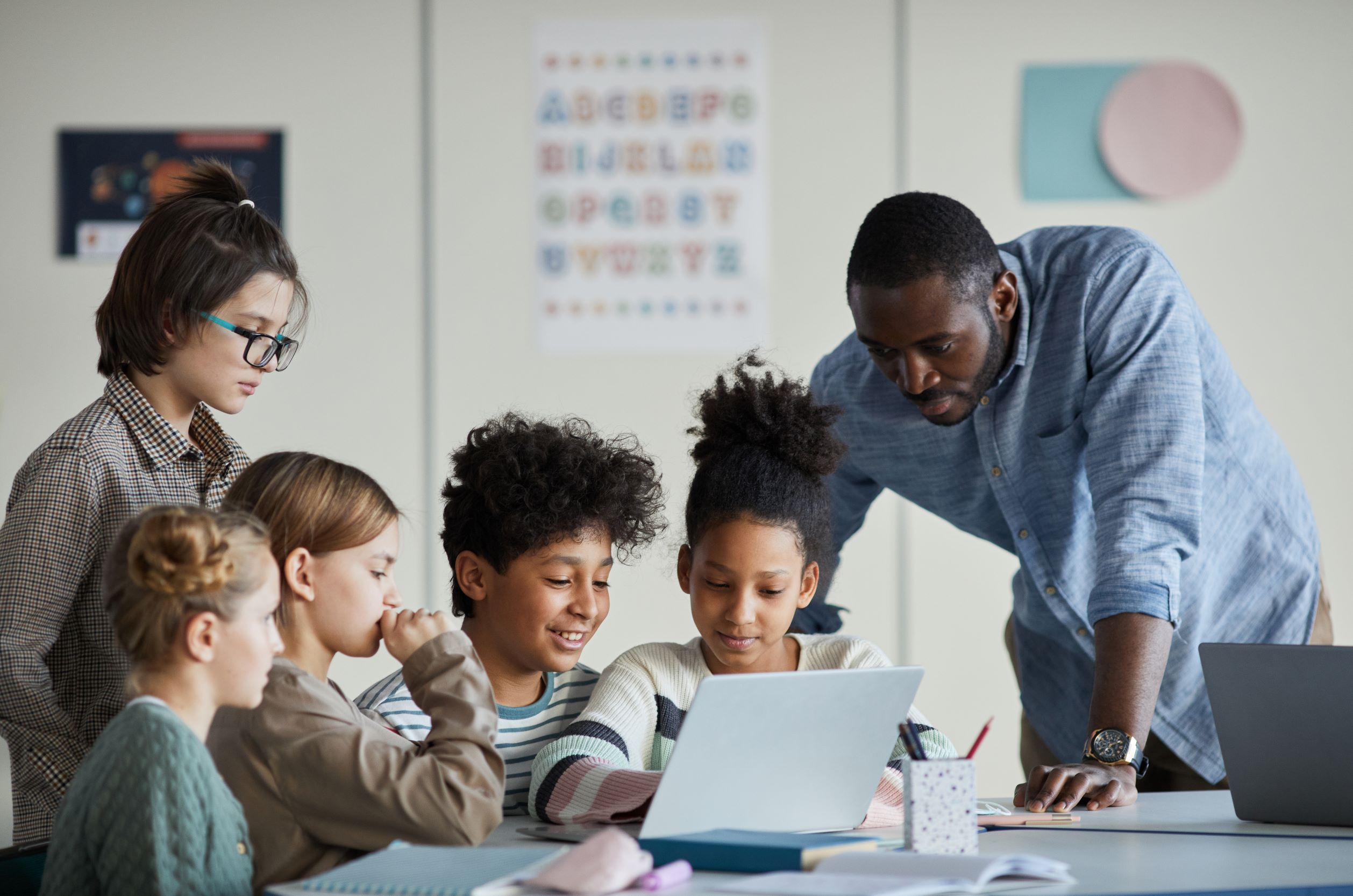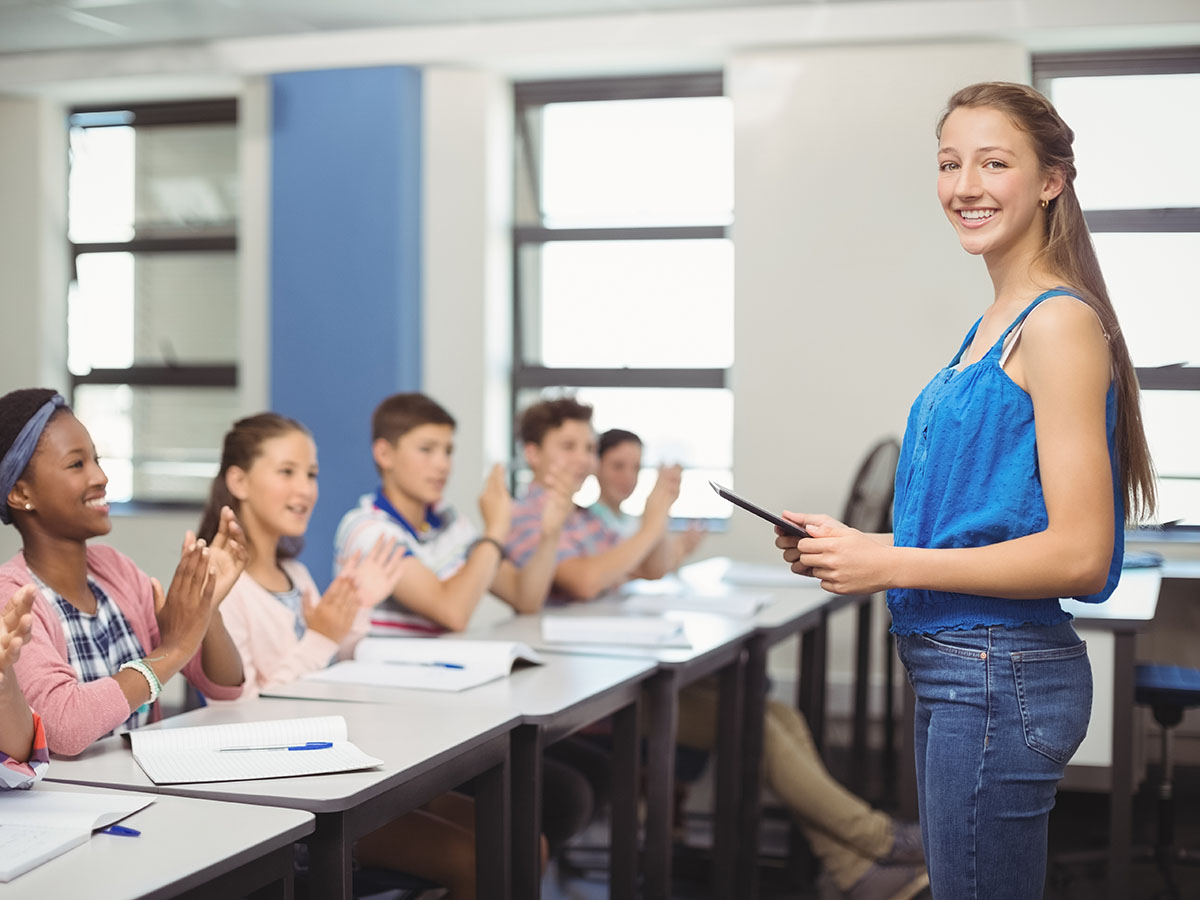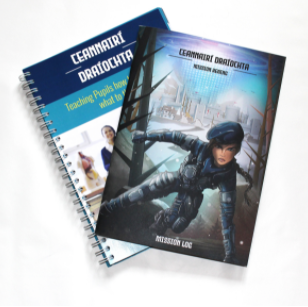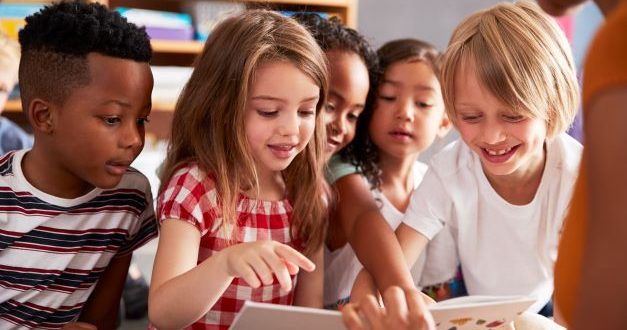What is Peer-Led Learning (PLL)?
A lesson we often teach our children is to 'work together' and to 'help each other'. These are skills we as adults try to implement into both our working and personal lives. Peer-led learning (PLL) refers to situations where peers support each other in learning processes, work together and help each other. An easy way to instil this 'teamwork approach' in the minds of our children and pupils would be to ensure they are taught and experience this approach at schools and at home.
A really simplistic example of peer-led learning in the classroom would be allowing students to correct each other's work. When students finish the lesson, ask them to swap with their neighbour. Allow pupils to offer feedback to their friends on the work they have completed.

The Benefits of Peer-Led Learning or PLL
Let's explore some of the benefits of peer-led learning;
Increased Motivation:
When looking back at our school days, motivation and morale were never as high as when we were allowed to carry out a task with a friend. Peer-led learning is a brilliant way to create some excitement around lessons that might otherwise be humdrum and tiresome. Creating groups or allowing groups to form themselves instantly adds an element of fun. Pupils become motivated and maybe even a little competitive to achieve the best possible outcome for both themselves and their team.
Personal Learning Experience:
What does this mean? Peer-led learning gives teachers the opportunity to move away from the traditional approach of teaching from the top of the class, even if just for an hour. PLL, or peer-led learning allows pupils to take control of their own learning experience while remaining in a controlled environment and continuing to learn. Students are placed in a position that they can share their thoughts and opinions with their peers while also having to listen to those of the rest of the group. This allows students to enhance their presentation oracy skills.
Co-operative Learning:
Peer-led learning encourages a 'work together' attitude in pupils. Cooperative learning is a successful teaching strategy in which small teams, each with students of different levels of ability, use a variety of learning activities to improve their understanding of a subject. Teams are accountable for their work, and the work of the group as a whole is assessed. Cooperative groups work face-to-face and learn to work as a team. It’s also important to note the additional skills that cooperative learning itself brings, such as communication and listening skills as well as confidence when speaking in groups.
If you’ve read our previous blog around 21st Century Skills, you will know that these skills are what form the foundations of our work here at Zeeko. If you are not yet familiar with the concept, 21st Century skills are abilities and attributes that have been recognised as necessary for success in the 21st Century. The identification and implementation of 21st Century skills into education and workplaces began in the United States but has since spread worldwide through national organisations such as the Organisation for Economic Co-operation and Development (OECD). 21st Century skills are divided into the 3 categories, ‘Learning Skills, ‘Digital Literacy Skills’ and ‘Life Skills’.

Which 21st Century skills can peer-led learning help us implement into the classroom?
In our research, we found that peer-led learning can help with at least 6 out of the 12 21st Century Skills. These being;
Critical Thinking: PLL aids critical thinking by encouraging student groups to analyse facts, ask questions and come up with solutions as a team. The outcome of critical thinking is creative problem-solving. By working together, they will analyse and ask questions until they understand the problem in a different way
Collaboration: When students work together in groups, they are working towards a common goal. Collaborating as a team teaches invaluable skills, such as; teamwork, empathy, emotional self-regulation, that pupils can take with them throughout their secondary school, university and professional lives.
Communication: Communication is essential to working as part of a group and in peer-led learning. Being able to effectively communicate your thoughts and feelings, both verbally, non-verbally and in any life scenario is a key factor to success.
Leadership: Every group needs a leader. Peer-led learning in primary schools empowers young people to experientially develop leadership skills to direct a group and take control of a situation.
Initiative: With leadership comes the need to take initiative. If we teach children the skills of taking initiative, to become great communicators and become great leaders, we are building the foundations of highly independent individuals. Pupils who are able to take their own initiative will excel in independent study and in a working environment.
Social Skills: Social skills can only be learned in social situations. Solely focusing on independent learning will lend to characteristics of students who are introverts. Social skills have always been important and will continue to be a vital skill into the 21st century and beyond. PLL can help develop social skills by encouraging students to work together.
If you are interested in introducing more peer-led learning into your classroom, check out the Zeeko education programmes. Zeeko’s Magical Leaders programme is a peer-led programme that helps students develop 21st century and transversal skills. The programme is engaging, fun, and interactive! The Magical Leaders programme is fully developed, with detailed lesson plans and instruction manuals included. Funded by Enterprise Ireland, the programme is currently free to schools in Ireland. For more information visit our website, or get in touch with the Zeeko Team today.


